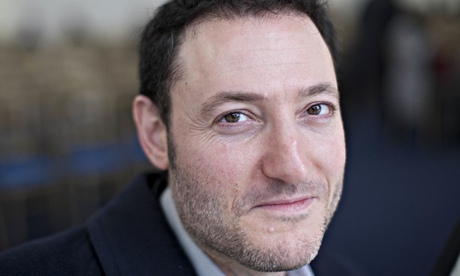
Tobias Hill is a writer who has never been easily classifiable. His work includes award-winning collections of poetry and short stories, a book for children, and five novels that nimbly dodge any attempt to fix him in a particular genre. From the dark gothic of Underground, through the rich historical detail of The Love of Stones and the futuristic tech-world of The Cryptographer, to 2009's The Hidden, a thriller that drew comparisons with John Fowles and Donna Tartt, each book seems to mark a new departure. What unites them is a wealth of research worn lightly, a sharp eye for the details that shape characters and, above all, a poet's flair for language.
What Was Promised, his fifth novel, is firmly rooted in his fascination with London's recent history. He takes as his epigraph a line of Emerson's: "Cities give us collision." This idea recurs throughout the book; in Hill's novel, these collisions can be literal or metaphorical, deliberate or coincidental, but each one alters a character's trajectory, sometimes with repercussions that are still felt decades later.
The novel is bound to attract comparisons with Zadie Smith's White Teeth, following as it does the lives of three immigrant families as they try to establish themselves in a small corner of east London. What Was Promised is divided into three sections, each set 20 years apart (1948, 1968 and 1988), though this deceptively simply structure provides the scaffolding for a far more complex time scheme, in which the narrative moves back and forth, shifting perspective between characters, parsing out information or leaving teasing cliffhangers to be resolved later.
The markets of Shoreditch around Columbia Road provide the arena for the novel's collisions. Michael Lockhart, Solly Lazarus and Clarence Malcolm are all costers, newly arrived in London in the hope of a better life, jostling to scratch a living ("Six years of war, nine of rationing, and everywhere feels the pinch") while their children play in bomb sites and ruined houses. Michael and his wife Mary have come in from Birmingham; an early stroke has left Michael with a limp and a ruthless determination to rise by whatever means: "There's violence in the man, just waiting to get out." Solly the watchmaker and his wife Dora are Jewish refugees from Danzig, a city whose very name has been erased in their wake. Clarence joined up to fight for Britain with a West Indian regiment; now he is The Banana King, wearing a crown of fruit to entertain customers.
Hill has a formidable ear for London's multiplicity of voices: the slang of Michael's petty criminal bosses, Clarence and Bernadette Malcolm's easy Jamaican lilt and Dora's hesitant English are all rendered with precision and fluency. But it is the characters and their relationships to one another that give this novel its momentum and vigour. Hill has a knack for pinpointing the small hopes, resentments and disappointments that his characters nurse in private, often unvoiced to those around them, and he renders them with affection, even a character as apparently cold as Michael. This is especially true of the women, most of whom hide their deepest longings; the frequent shifts of authorial perspective allow us access to their interior lives, to contrast with the way they are seen by others. "She does hope, when she thinks no one is watching."
One might observe that a few too many of the novel's collisions depend on coincidental meetings, but that is part of the artifice of fiction. Hill has created a dazzling and deeply affecting portrait of a city struggling back to prosperity and of the resilience of its people. It is a novel that questions the idea of home, and what it means to belong, and should secure Hill's reputation as one of the outstanding writers of his generation.

